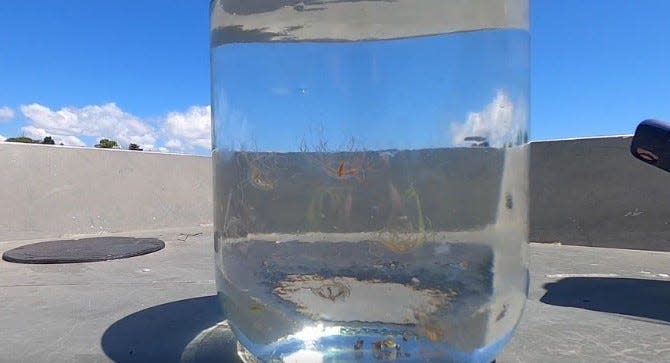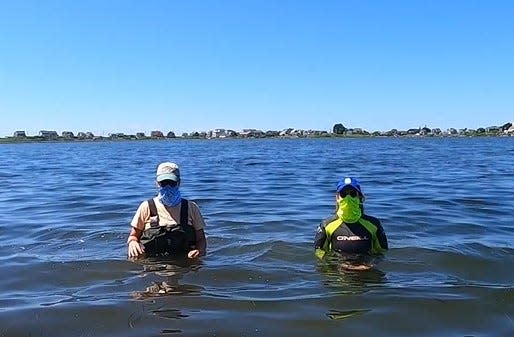RI DEM warns of dime-size jellyfish that can send victims to the hospital
The Rhode Island Department of Environmental Management is warning of a dime-size jellyfish that packs a sting powerful enough to put a person in the hospital.
"Please be advised – clinging jellyfish, a species that can have a powerful sting for those who are sensitive to it – have recently been found in Potter Pond (in South Kingstown) and Ninigret Pond" in Charlestown, the DEM says in Facebook and Twitter posts.
Included with the posts is a video by state Department of Marine Fisheries student researchers Alex Geisser and Olivia Chatowski that includes tips on avoiding the stings.

In 2019, The Journal reported that over three days in early July, five people were taken hospitals after being stung by the tiny creatures in Potter Pond and Point Judith Pond in Narragansett. A man believed to have been stung by one or more of the jellyfish felt his airway close and thinks he might have died if he hadn't been treated with an anti-allergy injector before an ambulance arrived.
The jellyfish are typically found in "calm, protected waters," from June until the fall, the researchers say in the video. "Because they are so small, they are difficult to see and avoid." The Narrow River, which flows through North Kingstown, South Kingstown and Narragansett, is another place clinging jellyfish can be found.
How can you avoid clinging jellyfish?
During the day, the jellyfish, which have an orange-brown cross on their transparent bodies, typically cling to vegetation such as eel grass, according to the video.
Rhode Island state beaches are officially open: Here's what to know
To avoid them, the DEM recommends staying in sandy or "surfy" areas away from vegetation.
"Waders, quahoggers, and others using shallow, protected water bodies, especially near aquatic vegetation like eelgrass, should take precautions against stings by wearing boots, waders or wetsuits to protect themselves," the DEM says.

The video shows Geisser and Chatowski in Potter Pond, sheathed up in waders and a wetsuit for protection.
The researchers suggest keeping first aid supplies for treating stings. Rinsing with vinegar or extremely hot water can help a sting, as can a hot compress or an ice pack. Do not rinse with cool water or urine, they say, since that can make it worse. Seek medical care if symptoms worsen.
Another tough challenge: Ben Tuff to swim Narragansett Bay to raise money for clean ocean
The stings can apparently affect pets, too. Commenting on the Facebook post, Michael Brown wrote, "My pup got tagged by one & had a severe allergic reaction. Keeping Benadryl on hand isn’t a bad idea. "
"Although these jellies have the potential to sting, don’t let that stop you from enjoying the beautiful coastal pond ecosystems and all the recreational opportunities they offer," the DEM says.
(401) 277-7614
Be the first to know.
Sign up for our breaking news alerts
This article originally appeared on The Providence Journal: RI DEM warns beachgoers of the dangers of clinging jellyfish

